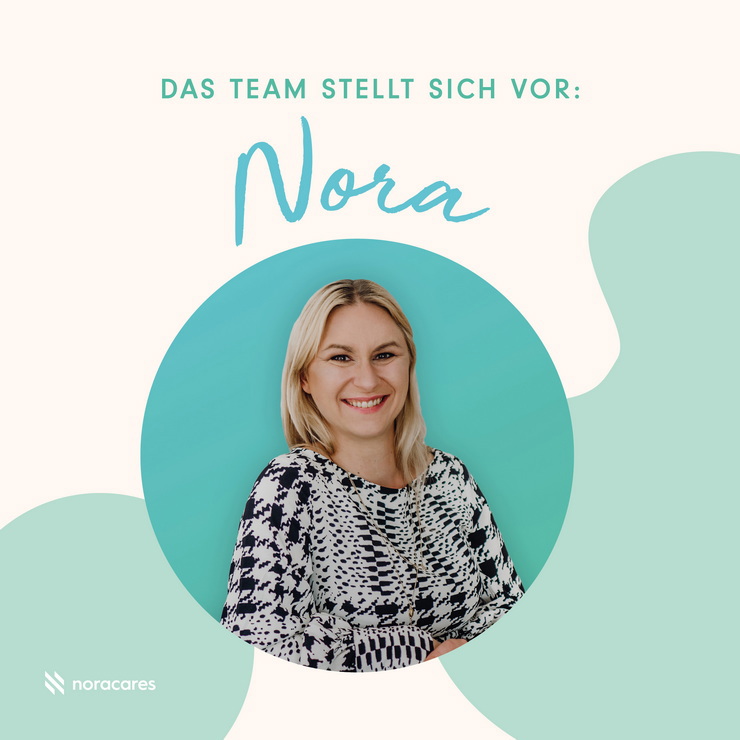noracares and 24-hour care: a revolution in care - the interview
A stroke, a challenge - and an idea that revolutionized the care industry. A personal experience gave rise to a vision that today helps countless people as noracares. Find out how a stroke of fate provided the impetus for a platform that makes care more transparent, efficient and humane.
It was a stroke of fate that made Nora question the care industry. When her best friend's husband suddenly needed care following a stroke, Nora was confronted with the challenges that many families are familiar with: opaque placement processes, high costs and the feeling of not really being able to trust anyone.
"The life that my friend had known until then came to an end from one day to the next. But there was no way she wanted to send her husband to a nursing home. He was always there for me, now I really want to be there for him, she said at the time," says Nora.
So everything had to be adapted, organized and applied for: Visits to the authorities, getting quotes for a care bed and a stairlift. A care assistant also had to be found.
"I remember the desperate search for a qualified nurse," says Nora. "Most of the offers were expensive, and it often remained unclear whether the caregiver would really suit us."
Nora had already gained some experience in the care sector at this point and therefore wanted to support her friend in more ways than just emotionally. They supported her in her search for a carer: "An agency was out of the question for cost reasons and the newspaper advertisements sometimes provided very dubious results - no direct contact details, no CV, no diplomas or certificates of training," explains the Linz native. "We also had little luck online. The portals were either not specialized in the care sector or were just as dubious as the newspaper advertisements."
"If I unexpectedly and unprepared find myself in the position of needing hourly care or 24-hour care at home, but my financial resources are limited, I face almost insurmountable problems," says Nora.
The "birth" of noracares
"I thought to myself: There must be a better way. The more experience my friend and I gained, the clearer the image of a company manifested itself in me that would make it much easier for people in a similar situation to cope," says Nora. That moment changed everything: the idea for noracares was born.
During the search, Nora came across numerous other challenges that many of those affected are familiar with: The caregivers were not chosen themselves - instead, the agency simply sends someone, which is a huge hurdle for many. It's difficult to build up sympathy and trust if you can't get to know the caregiver in advance. But not only for the caregivers, but the situation was also often difficult for the nursing staff: "The nursing staff are in a similar situation. In addition to this lack of exchange, they also often have to contend with unfair pay," says Nora.
"I wanted to find a solution for my friend where she and the care case really have a say and know who is coming into the house," explains Nora.There was a lack of transparency and security, which was a huge burden for families.
These were the key reasons why the founder wanted to create a new approach with noracares: "We focus on the independent search. With agencies, a person mediates between the person looking for care and the caregiver. With us, this intermediate step is eliminated. All you have to do is register and our intelligent matching system will suggest the right person for you," explains Nora.
How noracares is setting new standards in care
"This will create more transparency in the search. You have much more say and can see at first glance, or at the latest when getting to know each other via video chat, whether the person suits me and my needs," says the founder. "Only when both sides are convinced of the other's requirements or expertise do we start working together. This gives us a completely new approach to the whole topic of care."
The features at a glance:
No one can say for sure what the future of care will look like. There are some ideas and trends, such as the introduction of mandatory long-term care insurance. The training, everyday working life and salary of nurses must also be adapted to make the profession more appealing and counteract the shortage of skilled workers.
"Of course, we at noracares also want to play our part in the future of care. Our innovative approach to care in general and care placement in particular is certainly a good way to rethink the entire care sector," says Nora.
Big goals for needs-based care
Accordingly, the founder also has big goals in mind: "In five years, I want noracares to not only be well established in German-speaking countries, but for us to already be active in many other European countries. We are now starting with Austria and Romania, in a few months, Germany, Bulgaria and Poland will follow. Then the plan is to expand our presence to the Scandinavian countries and France in Western Europe, as well as Hungary, Slovakia and Ukraine in the Eastern European countries."
One thing is certain in any case: The faster noracares grows and the more people are reached, the more knowledge we can make available to those affected by care and care staff and thus do what noracares was created for:




